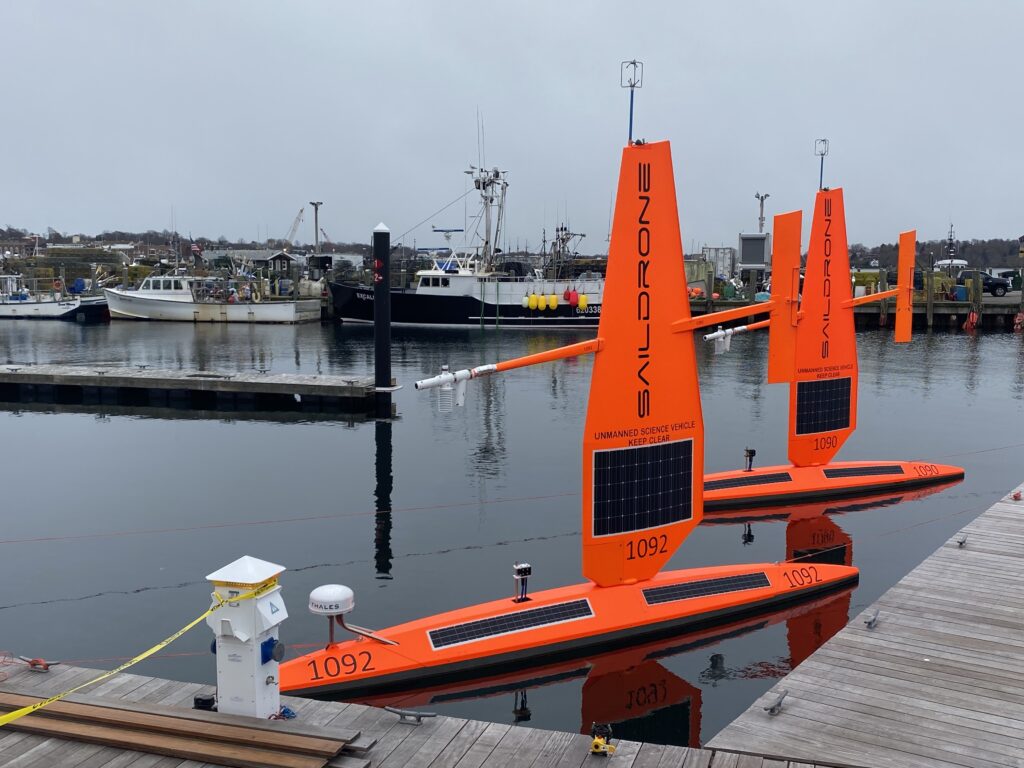US tech developer Saildrone has launched three uncrewed surface vehicles (USVs) on a six-month mission traversing the Gulf Stream – the North Atlantic’s swiftest current – collecting critical data to help improve weather forecasts and carbon accounting.
The mission is being led by scientists from the University of Rhode Island (URI) and the European Centre for Medium-Range Weather Forecasts (ECMWF). Funded by a grant from the Google.org Impact Challenge on Climate, the ocean drones will brave some of the harshest ocean conditions on Earth, collecting data in areas that traditional crewed ships cannot tolerate.
The Gulf Stream has a significant impact on weather systems and the global carbon budget. However, collecting data can be extremely challenging. The Global Carbon Budget 2021, released at COP26, uses ocean carbon uptake estimates generated by models and sophisticated statistical methods that fill gaps where it has been impossible to collect in-situ data. But the various models and their assumptions yield a wide variety of results.
Jaime Palter is a scientist at the University of Rhode Island and is co-leading the research. She said, “There is a lot of uncertainty in ocean carbon uptake. Nearly four billion tons of CO2 separates the average of the model-based estimates from observation-based estimates. That’s nearly as much CO22 as is emitted by the US [about five billion tons] each year. With more in-situ observations, we can do better.”
Saildrones, powered by the wind and sun, have been designed to collect data in the most remote and harsh areas of the oceans, without risk to human life and with a zero operational carbon footprint.
“The Gulf Stream also has a big impact on weather forecasts and climate predictions,” said Philip Browne, a research scientist at ECMWF. “We are excited to be able to target Saildrones to collect data from this physically and scientifically challenging region to help improve our Earth system approach to forecasting.”
Saildrone Explorers have already sailed across the Atlantic in both directions. Earlier this year, a group of Saildrone USVs equipped with a special ‘hurricane wing’ recently captured the first-ever live video from inside the eye of the Atlantic category 4 Hurricane Sam. Another vehicle also completed the first autonomous circumnavigation of Antarctica, with a different specially modified wing.
Richard Jenkins, the founder and CEO of Saildrone, said, “Since our first science mission in the Arctic in 2015, Saildrone has worked tirelessly to measure climate quality data from Earth’s most remote oceans and deliver that data to scientists all over the world. We believe this data will dramatically improve understanding of critical climate processes and enable more accurate predictions of our future, which will in turn help guide global climate policy and decision making.”
Brigitte Gosselink, Google.org’s director of product impact, said, “Data is a critical enabler of our shared goals for sustainability at scale. As the pace of climate action continues to accelerate, a lack of quality data can often leave researchers, advocates and policymakers without a roadmap. Google.org believes open climate data is a public good, and we’re thrilled to support this work.”
Data from the mission will be sent via satellite in near real time to help scientists at ECMWF improve their Earth system approach to forecasting, and those at the University of Rhode Island working to quantify the Gulf Stream’s role in carbon uptake and predict its stability or vulnerability in the future. The three Saildrone Explorers are expected to be retrieved in Newport, Rhode Island, in mid-2022.



